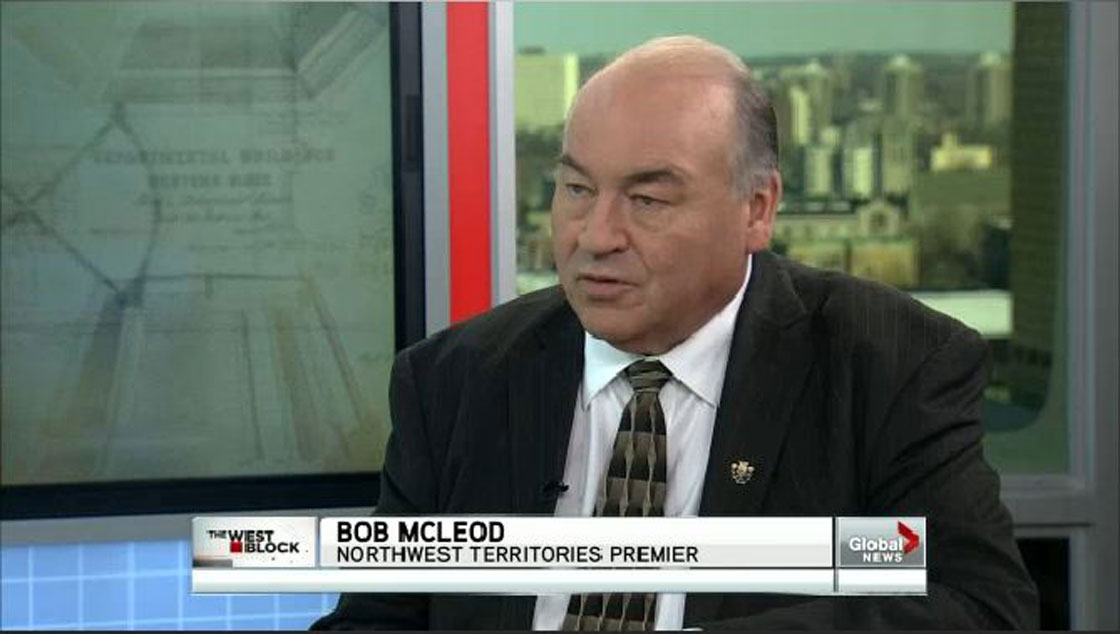TORONTO – Premier Bob McLeod says devolution funds will be directed to program and services for citizens of the Northwest Territories, but his finance minister disagrees.

McLeod told Global’s Tom Clark, host of The West Block, in February that the transfer of resource rights from Ottawa to the NWT will generate about $65 million dollars a year to start, money that will be invested in programs and services.
“We’ll collect resource royalties so the development that occurs will not only provide for jobs and employment but also we will collect royalties that we can invest in programs and services for the people of the Northwest Territories,” said McLeod.
The same week, Finance Minister Michael Miltenberger said none of the royalty cash would be used on program spending. Miltenberger said paying for ongoing expenses with resource money, as Alberta does, creates volatile budgets that fluctuate with foreign markets.
Miltenberger plans is to invest the money back into energy infrastructure and exploration projects, while foreseeing that may lower the cost of living for citizens as fuel becomes more abundant and accessible.
He said there are 21 potential energy and mineral developments in the NWT that could haul in $21 billion in investments.
“The intention is to listen to our people of the North when deciding how our dollars will be spent,” said the premier’s spokesperson Brenda Norris in an email.
“It all depends on what the people want. Minister Miltenberger spoke about the importance of infrastructure and the Heritage fund and the Premier spoke about programs and services for the people. They are both right… we have a consensus government up here and the decisions about where the money will go will be up to the people”
Both are saying devolution will bring more jobs to the territory – but haven’t offered any numbers.
Currently the unemployment rate in NWT sits relatively well at 7.4, above Ontario and the Atlantic provinces.
Prime Minister Stephen Harper signed the agreement on Monday ceding all federal control over land, resources such gold, diamonds and liquid natural gas, and water.
“It’s time for the people of the Northwest Territories to take control of their destiny,” said Harper.
Former premier Stephen Kakfwi told the Globe and Mail that citizens are concerned that increased energy and mineral exploration could pose negative effects on the environment.
“The fear is that in the future, the government will always be keenly interested in getting oil and gas activity and mining activity going with less concern for the socioeconomic impact and the environmental impact of these projects,” says Mr. Kakfwi.
The move fits with the Conservative government’s continued deconstruction of federal oversight on land and water. Devolution will likely ease the regulations that hold back approvals to start resource projects.
Public consultation will take place before April 2014, when the handover is scheduled to take place.
The Conference Board of Canada released a report this week predicting that global demand will push mining output in NWT from $732-million in 2011 to $1.3-billion in 2020. NWT expects to open four new mines in 2015.
McLeod is promising 25% of the revenue will go directly to aboriginal governments.
Yukon’s 2003 devolution helped to make it one of the fastest growing economies in the country with an unemployment rate of 6.1. Ottawa is also considering devolution with Nunavut.




Comments